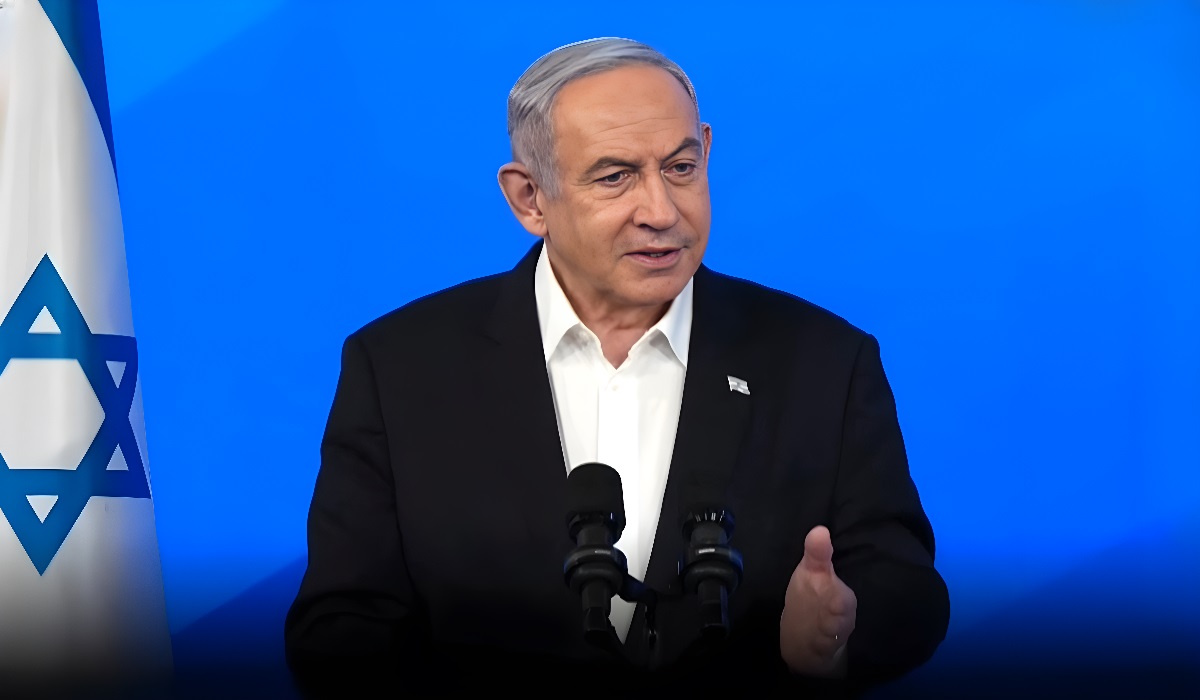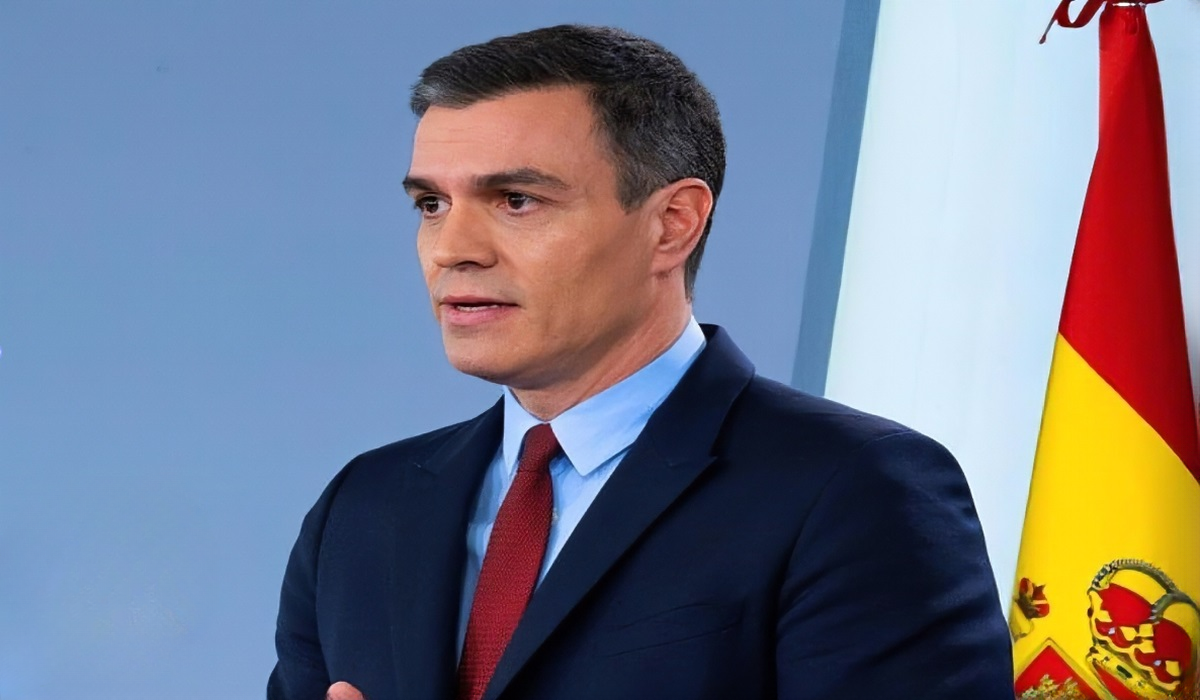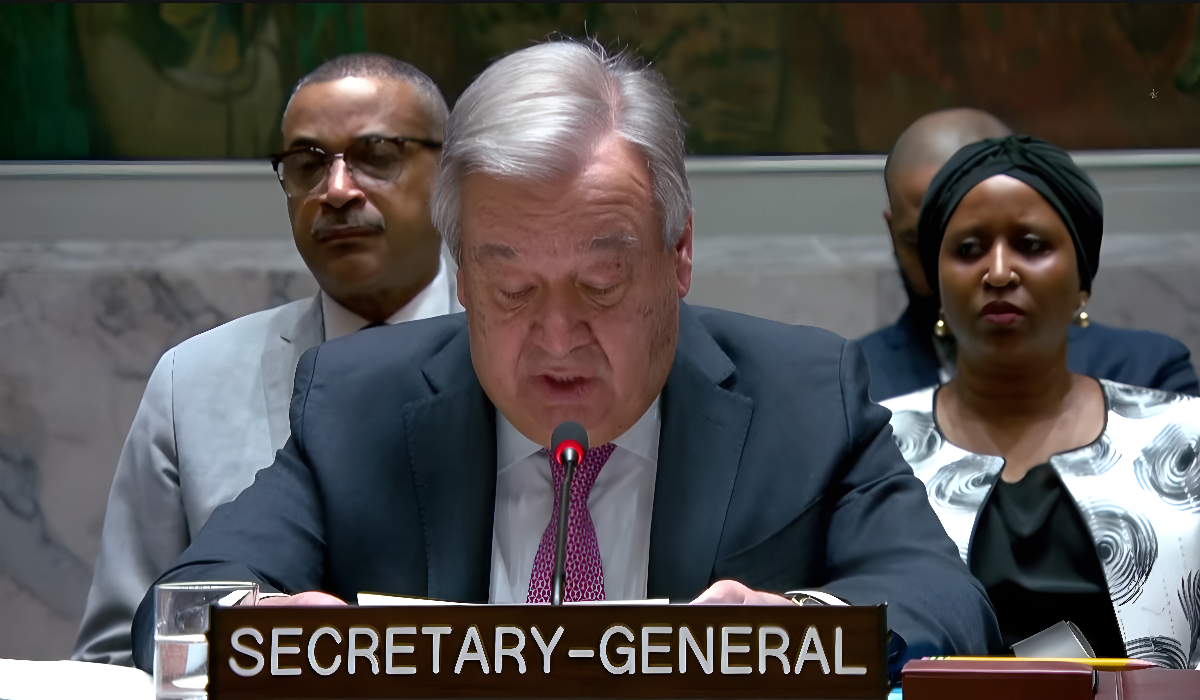Netanyahu’s Strikes Iran, Disregards President Biden’s Warning To Ease Tensions
- TDS News
- Breaking News
- April 19, 2024

Israel’s retaliatory strike against Iran, following the assassination of Iranian citizens, including generals, on Iranian soil, has heightened tensions in the Middle East. Prime Minister Benjamin Netanyahu’s refusal to heed calls from the international community to de-escalate and refrain from further retaliation has exacerbated the situation, drawing widespread concern and condemnation.
Despite calls for restraint and diplomatic engagement, Netanyahu has pursued a policy of aggressive retaliation, seemingly indifferent to the potential consequences for regional stability and peace. His actions reflect a concerning disregard for international norms and the rule of law, as well as a willingness to escalate conflict in pursuit of perceived security objectives.
Moreover, Netanyahu’s open defiance of US President Biden’s calls for de-escalation underscores the strained relationship between the two leaders. The perceived weakness and subservience of the Biden administration to Netanyahu’s agenda have emboldened the Israeli prime minister to act with impunity, confident that there will be no meaningful repercussions from the US or its allies.
The continuation of unwavering US support for Israel, including significant military aid, further reinforces Netanyahu’s belief that he can act recklessly without facing consequences. This lack of accountability not only undermines efforts to resolve the Israeli-Palestinian conflict but also tarnishes US credibility and moral authority on the global stage.
By prioritizing its alliance with Israel over the pursuit of peace and justice in the Middle East, the Biden administration risks alienating key allies and compromising its own credibility and moral standing. The willingness to disregard calls for de-escalation in favor of unwavering support for Israel sends a troubling message about US priorities and values.
The complicity of not only the Biden administration but also other Western powers like Britain, Canada, and Germany in the recent escalation of tensions in the Middle East cannot be overlooked. Instead of unequivocally condemning Israel’s attack on Iran, these leaders and their Foreign Affairs ministers have opted for vague statements calling for both parties to de-escalate, effectively glossing over Israel’s actions.
This pattern of behavior is part of an ongoing trend where Western leaders refuse to condemn Israel for any atrocities committed in the region while readily condemning other nations like Iran and Hamas. At the same time, it’s acknowledged that heinous atrocities, such as the terrible events by Hamas on October 7th, and other acts through proxies, it’s crucial to examine the root causes of such actions.
As the UN has repeatedly stated, the Palestinian people have been living under occupation for decades, enduring an apartheid regime that borders on genocide. Yet, when Israel attacked the Iranian Consulate in Syria, there was little to no condemnation from the G7 leaders. The lack of acknowledgment of this attack on foreign soil sets a dangerous precedent and highlights a glaring double standard.
When Iran retaliated, the narrative shifted to criticizing Iran for using excessive force, further highlighting the hypocrisy in Western responses to conflicts in the region. This double standard erodes trust in political leadership and fuels skepticism among citizens. It’s evident that political decisions are often driven by financial interests rather than principles of justice and human rights.
US Secretary of State Lloyd Austin’s dismissal of signs of genocide in Gaza further exacerbates the issue. Despite overwhelming evidence from international bodies like the International Criminal Court, which has documented over 33,000 deaths in Gaza, primarily of women and children, Austin’s remarks illustrate a willful ignorance of the reality on the ground.
Israel’s announcement to redevelop Gaza for Israeli settlers and its invasion of Rafa, where over a million Palestinians are trapped with nowhere else to go, adds another layer of complexity to the situation. Experts and scholars have rightly characterized these actions as not just genocide but also ethnic cleansing. The US’s unwavering support for Netanyahu, evidenced by its plan to send another $26 billion in aid, further underscores its complicity in Israel’s actions.
This blind support for Israel at the expense of Palestinian lives has led to growing discontent among global citizens. Instead of prioritizing peace, humanity, and inclusivity, the G7 leaders prioritize political alliances and campaign funding, alienating large segments of their own populations.
The consequence of this approach is a loss of credibility and influence on the global stage for the US and its Western allies. As more countries distance themselves from the US and its policies, it’s clear that a fundamental shift in approach is needed. Rather than perpetuating conflicts and prioritizing narrow interests, there must be a strive for genuine peace and justice in the Middle East.
The distorted narrative presented by the media further complicates matters, as citizens are often shielded from the full scope of events unfolding in the region. Without access to unbiased information, it becomes challenging for individuals to form informed opinions and hold their leaders accountable.








